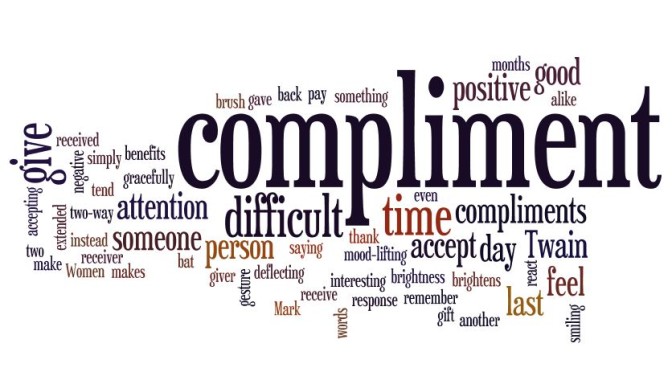So just recently we were talking about defining your adjectives, the ones that other use to describe us, and how we describe ourselves and the power with them. I can across this great article that I can totally relate to . I remember being 18 years old and I wet to a party at a fellow dancer’s house, her brother kissed me…on the dance floor, jaws dropped. Well I was told by a mutual friend said that she asked later “Why her? She’s so….fun loving”…fun loving, doesn’t sound bad but what it sounded like is that she wanted to call me a slut but couldn’t muster the balls..
Via Huffington Post
These words have positive meanings, at least on the surface. Probably you’ve used at least some of them with nothing in your heart but affection and sincerity. And yet… there’s an undertone of snide disdain just underneath. Perhaps it’s because they praise traits or behaviors that are perceived as more shallow or easily faked; if you call a prospective suitor “charming,” you’re stating that he’s capable of easily winning people over, but by using that word instead of calling him “a wonderful guy,” you’re implying that he doesn’t necessarily deserve such approval. Charm is something to treat with suspicion, like PR campaigns or Bill Clinton.
If you’ve ever been graced with one of these adjectives, only to find you feel unsure whether you’ve just been complimented or coolly insulted, you’re not alone.
charming: See above — though sometimes sincerely complimentary, it can make a person’s likability sound calculated and even a bit unsavory.
charismatic: Charisma is an intangible quality that draws people in, so it’s often applied to people who seem to attract people despite clear flaws. When someone says “He’s so charismatic!” it seems like they may as well be saying “Everyone seems to love him, but I don’t know why!”
clever: The word suggests smarts, but not wisdom or depth of understanding. It can be deployed to minimize intelligence by suggesting it’s no more than a surface-level quickness. An ironic “Well, how clever of you” is a great way to deflate someone who’s overly impressed with their own insight or ingenuity.
creative: Sure, we all want to be “creative.” But if your new necklace, hairstyle, use of punctuation, or reading of the instruction manual is in question, creative starts to sound more like “bizarre.” For example: “Are those new earrings from the folk art museum? They’re so … creative.”
well-meaning: It’s good to mean well! But if someone has to point out that you’re well-meaning, it’s probably because your good intentions paved a road to hell.
intense: If people frequently call you “intense,” consider that they may simply be afraid to call you “terrifying” or “high-strung.”
capable: It’s wonderful to be perceived as capable at your job, but it’s no “talented” or “brilliant.” “She’s capable” can sound a bit like a dismissive pat on the head at times, implying that higher accolades simply aren’t merited.
pleasant: Is there any more tepid compliment than “pleasant”? It’s not “fun.” It’s not “fantastic.” It’s just … pleasant. Enjoyable enough, but not exciting or noteworthy. Saying someone is pleasant carries a whiff of lukewarm approval, if not slight disdain.

